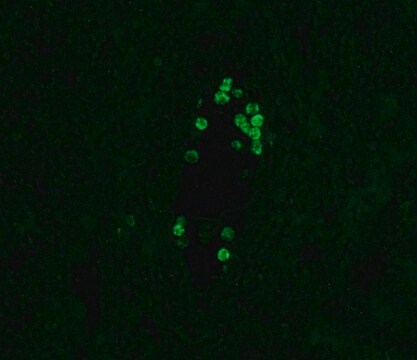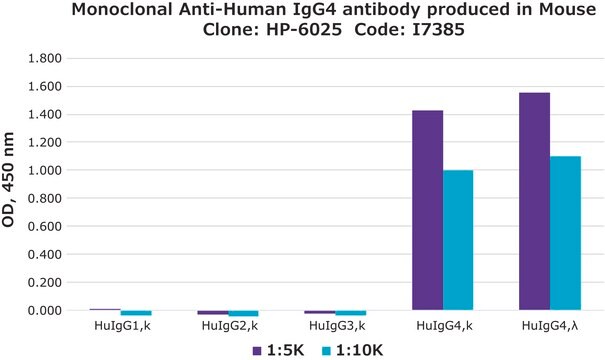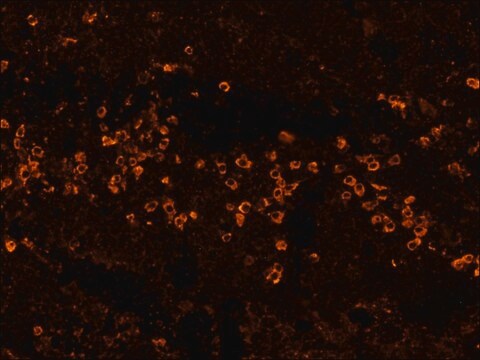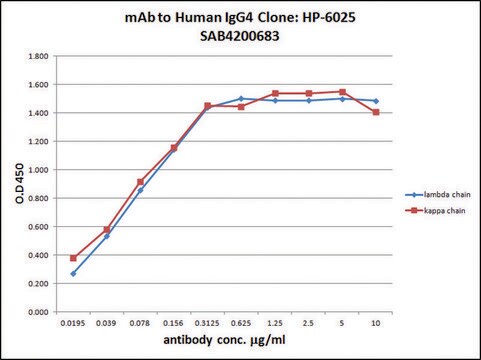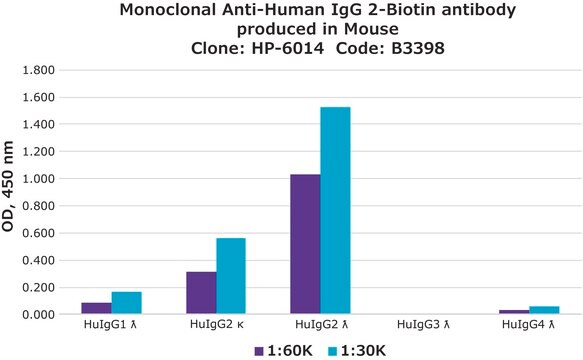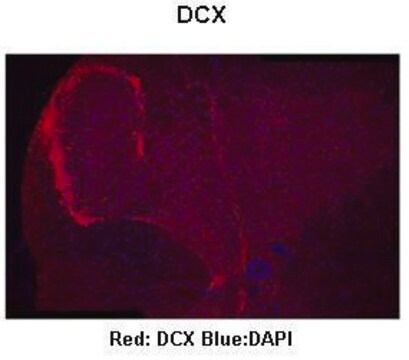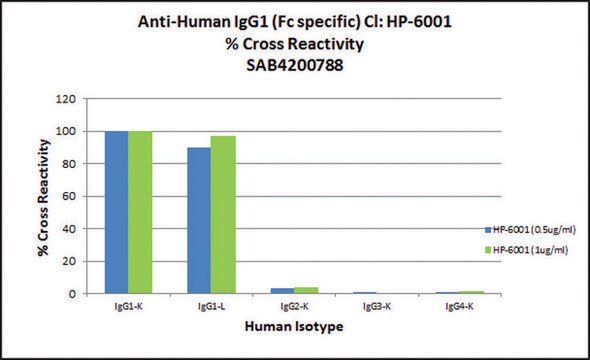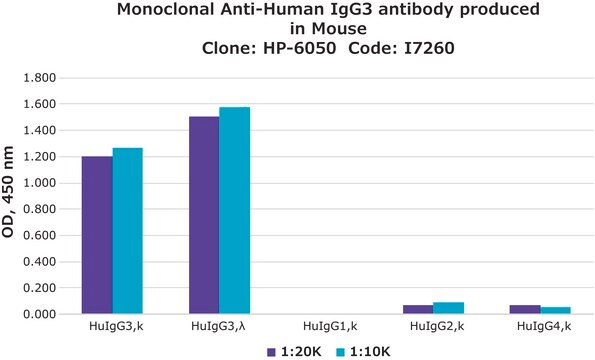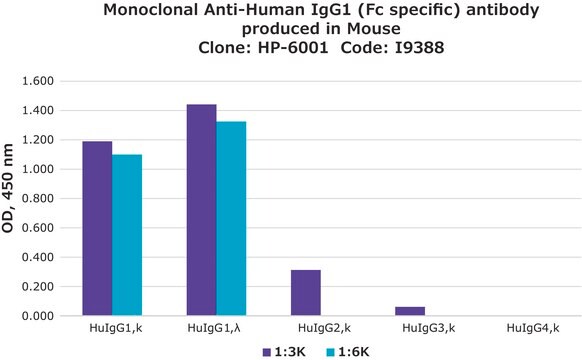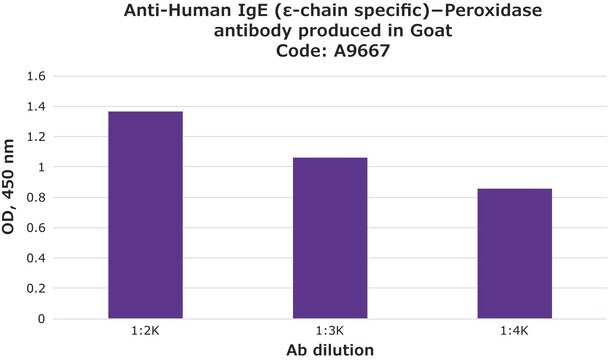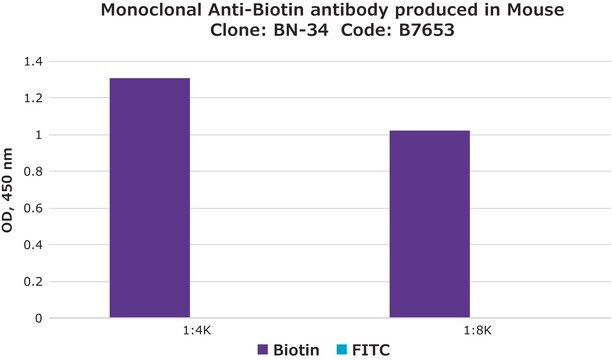B3648
Anti-Human IgG4−Biotin antibody, Mouse monoclonal
clone HP-6025, purified from hybridoma cell culture
Synonyme(s) :
Monoclonal Anti-Human IgG4
About This Item
Produits recommandés
Source biologique
mouse
Conjugué
biotin conjugate
Forme d'anticorps
purified immunoglobulin
Type de produit anticorps
secondary antibodies
Clone
HP-6025, monoclonal
Forme
buffered aqueous solution
Espèces réactives
human
Technique(s)
direct ELISA: 1:60,000
Isotype
IgG1
Conditions d'expédition
dry ice
Température de stockage
−20°C
Modification post-traductionnelle de la cible
unmodified
Vous recherchez des produits similaires ? Visite Guide de comparaison des produits
Spécificité
Application
Actions biochimiques/physiologiques
Forme physique
Clause de non-responsabilité
Vous ne trouvez pas le bon produit ?
Essayez notre Outil de sélection de produits.
Code de la classe de stockage
12 - Non Combustible Liquids
Classe de danger pour l'eau (WGK)
nwg
Point d'éclair (°F)
Not applicable
Point d'éclair (°C)
Not applicable
Certificats d'analyse (COA)
Recherchez un Certificats d'analyse (COA) en saisissant le numéro de lot du produit. Les numéros de lot figurent sur l'étiquette du produit après les mots "Lot" ou "Batch".
Déjà en possession de ce produit ?
Retrouvez la documentation relative aux produits que vous avez récemment achetés dans la Bibliothèque de documents.
Les clients ont également consulté
Notre équipe de scientifiques dispose d'une expérience dans tous les secteurs de la recherche, notamment en sciences de la vie, science des matériaux, synthèse chimique, chromatographie, analyse et dans de nombreux autres domaines..
Contacter notre Service technique